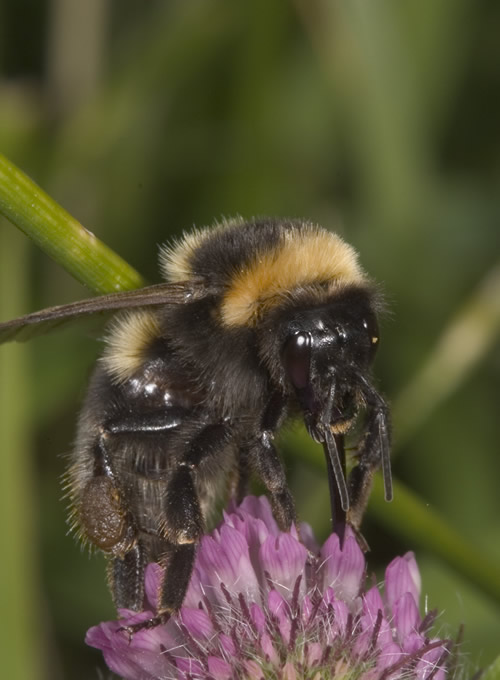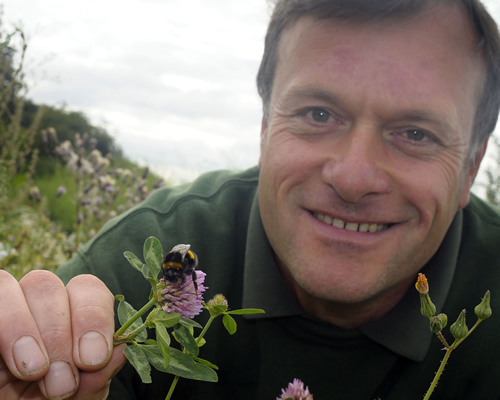
Worcestershire vegetable growers Paul and Mike Southall, have miraculously brought back one of the UK’s most endangered species of bumblebee to Norchard Farm near Stourport on Severn. Special conservation areas of Syngenta Operation Bumblebee habitat planted around their fields are currently ablaze with colour, full of pollen and nectar and alive with the buzz of bumblebees and other insect species.
One of these bumblebees, Bombus ruderatus, is one of the most precariously balanced species in the UK. The loss of habitat and breeding sites over the past 50 years has seen numbers fall dramatically, with just two sites in Worcestershire currently recording its existence. Now experts have identified this rare species on the Southall’s farm, along with thousands of other bumblebees, butterflies and insects.
"The results we have seen on our farm has been incredibly exciting," enthuses Mike Southall. "The Operation Bumblebee wildflower habitats are full of colour and teeming with insect life. The speed at which bumblebees and other insects have colonised even small areas of dedicated habitat is quite remarkable.
"We are very proud of what we have achieved with Operation Bumblebee and the way that we manage the environment alongside our food production. Finding such a rare species as Bombus ruderatus makes it even more worthwhile."

Paul and Mike are currently picking high quality dwarf green beans for leading supermarket retailers Sainsbury’s, which has been pioneering the exciting Syngenta Operation Bumblebee project with all of its fresh produce suppliers.
They have been encouraged and helped to establish the special mix of wild red clover and other native flowering plants to provide essential sources of pollen and nectar, and with it encourage the return of bumblebees onto UK farmland. Even small areas of the new habitat can make a huge difference by providing a season-long source of pollen and nectar that are the building blocks of biodiversity.
Extensive research and on-farm trials has shown establishing an area of just 100m x 10m of the new habitat (1/10th hectare) can increase bumblebee numbers by up to 600% in two years, along with equally significant increases in butterflies and other insects.
Sainsbury’s growers have currently established an amazing two and a half million m2 of the Operation Bumblebee habitat, and are making a huge impact of restoring the plight of the bumblebee.
This work is starting to deliver real benefits for the environmental and sustainable food production, according to Debbie Winstanley, Sainsbury’s Company Agronomist. "Sainsbury’s customers care about the environment in which their food is grown. This project demonstrates how sustainable, profitable food production and a vibrant countryside can sit side by side."
Last month Sainsbury’s started an initiative to offer customers free Operation Bumblebee seed when buying Johnsons’ flower and vegetable seeds in store. "The fact that customers can now create their own piece of Operation Bumblebee at home further strengthens the links between them and our growers."
